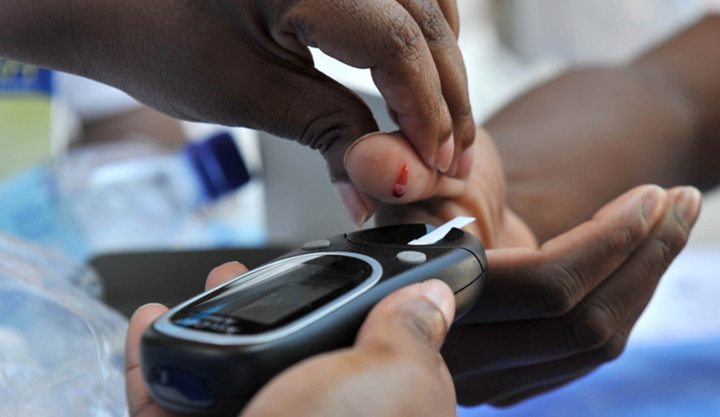South Africa
Health-e News: Junk food, junk status cause skyrocketing medical costs

Over 100,000 new diabetes cases are expected in South Africa in 2017 in the public sector alone, and costs of treating the disease are rising. Our recent downgrade to junk status has public health experts concerned about a spike in medical expenses. Amy Green reports for HEALTH-E NEWS.
There are close to 10,000 new cases of diabetes in the South African public sector every month, and this is growing, according to Professor Karen Hofman from the University of the Witwatersrand’s School of Public Health.
Clinics are already reporting being overwhelmed with the new diabetes cases, which are often not easy to manage by the time a person has been diagnosed – usually in a fairly late stage of the disease.
“Furthermore, with the downgrade to junk status for SA, the cost of pharmaceuticals will skyrocket and will impact the cost of care of people with diabetes in both the public and private sector,” Hofman said.
Diabetes is a disease where the body cannot adequately control its blood sugar levels. Type 1 diabetes is not common and can be present in young people, but type 2 diabetes, which generally develops later in life, is responsible for more than 90% of all cases.
All type 1 diabetics need the injectable medicine insulin while type 2 diabetics are treated with oral medicines but some might eventually need insulin too, says Andy Gray, a senior lecturer in pharmacology at the University of KwaZulu-Natal.
Gray said that if the junk status downgrade results in a marked slump in the value of the rand, “then an impact on medicine prices is inevitable, as we are almost entirely dependent on imported active ingredients or finished products”.
Drug prices are only one cost concern. In South Africa, type 2 diabetics are often diagnosed long after they have developed the disease – when complications of untreated diabetes also need to be treated. These can range in expense but often need in-hospital stays for relatively expensive and resource-intensive procedures like amputations.
Already, 7% of South Africans aged between 21 and 79 years have the condition, equating to almost four-million people, according to endocrinologist Dr Sundeep Ruder, who is also the spokesperson for the civil society group the Healthy Living Alliance.
But the International Diabetes Federation estimates that two-thirds of people living with the condition in Africa are undiagnosed, and rates in South Africa and across the continent are expected to more than double by 2040 – a “health timebomb” waiting to explode, according to the federation.
Also, more than anywhere else, diabetes affects Africans in their most productive years. According to the Federation, in 2013 more than three-quarters of deaths due to diabetes were in people under the age of 60, having a significant effect on the continent’s economy.
Recently, StatsSA reported that diabetes is now the second biggest killer in South Africa, behind tuberculosis (TB). But it is the number one killer of South African women.
Ruder said that the many diabetics who don’t die often suffer debilitating complications such as amputations or blindness, affecting their ability to work and contribute to the economy.
“Our setting is a mixed pot of communicable [such as HIV and TB] and non-communicable diseases where diabetic patients are easily missed,” he said. “In First World settings, where lifestyle diseases are more common and where health systems are better resourced, they can pick up complications early.”
He said about 85% of type 2 diabetics are obese and that there are misperceptions about healthy body weight in South Africa, which delay diagnosis and treatment.
“A lot of people think that if you’re big you’re healthy and they ignore excess body weight until it leads to a disease we can see and/or feel, like eye problems, chest pain or stroke symptoms,” he said.
Obesity is a major risk factor for diabetes. But diabetes is often called a “silent epidemic”, said Ruder, as many with the condition don’t have overt symptoms.
“Instead of testing blood glucose regularly, patients often only come to us when things have become drastic, which often makes treatment a salvage operation. A lot of diabetics are only diagnosed after they have had a heart attack or symptoms of one.”
These complications of diabetes are costly to treat and, by this time, patients have lower chances of coming out of “salvage” treatment alive or healthy enough to work.
Ruder said South Africa needs to be “far more aggressive” in its diabetes prevention approach.
“First, attention to diet is the most important. We need to prevent obesity and the excess consumption of unhealthy foods. We need more measures to promote behaviour change and we need a lot more education and public awareness.”
According to Hofman, the first point of call should be taxing sugary drinks: “The intake of sugary beverages is growing and is a major contributor to diabetes even without obesity. Junk food and sugary beverages are currently cheap and are marketed relentlessly, with the sugary beverage companies targeting the poor in sub-Saharan Africa as part of their growth strategy.”
In February, Treasury announced an 11% tax on sugar-sweetened beverages but civil society bodies like Heala are critical of this as government has backtracked from its original proposal of a tax of 20%.
According to Ruder, the second focus after diet should be early screening and treatment: “Studies show that even if a patient slips up with their treatment later, if they started treatment early into the onset of their disease, they still do much better in the long term.”
But for Hofman, there is an urgent need “to ‘turn off the tap’ and prevent the disease to begin with”. DM
Photo: Community members get tested for sicknesses such as high blood pressure and diabetes at Prince Mshiyeni Memorial Hospital during the World Diabetes Day awareness campaign led by MaNgema Zuma in Umlazi, South Coast of KwaZulu-Natal, 22 Nov 2012 (GCIS)


















 Become an Insider
Become an Insider